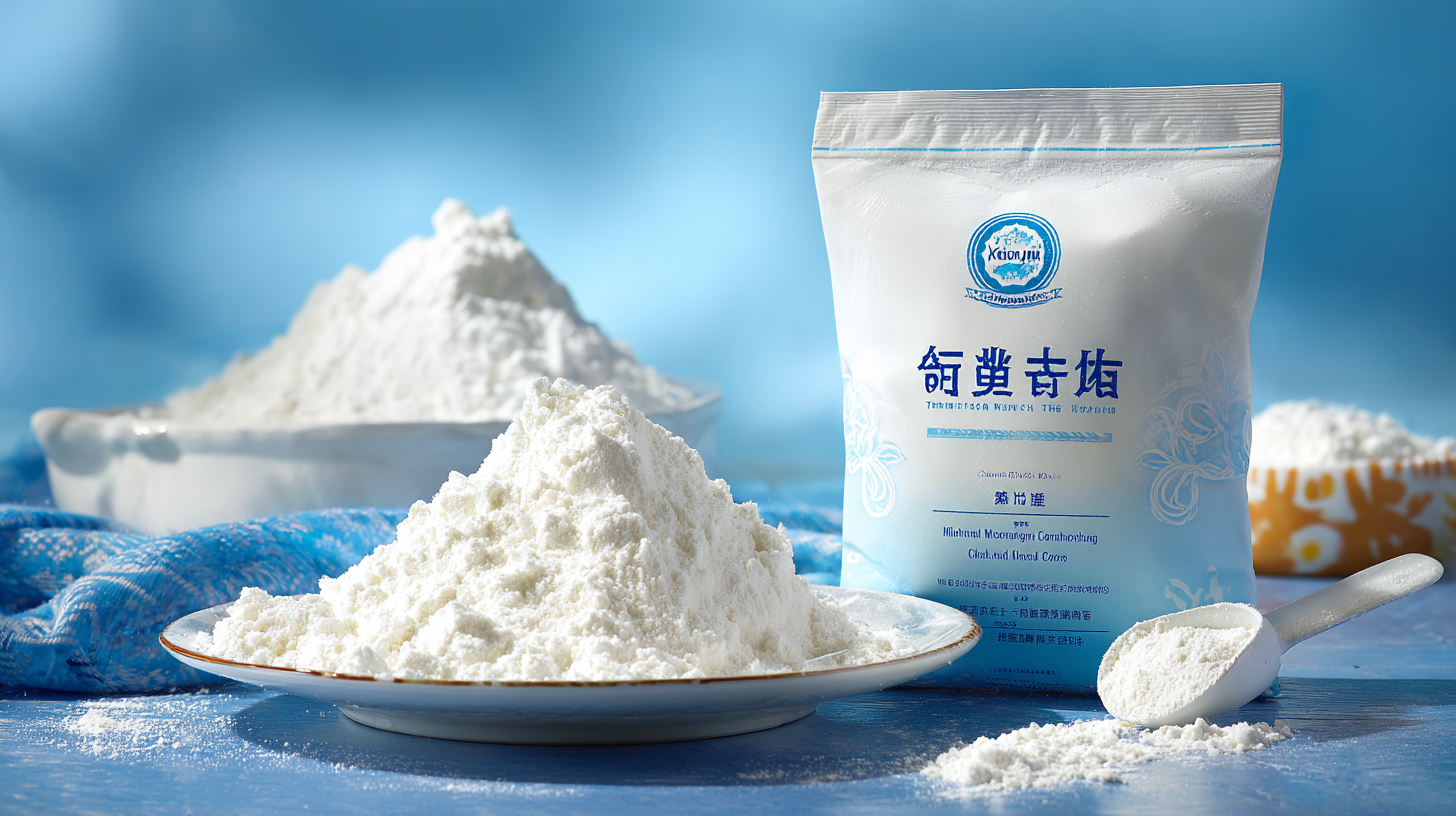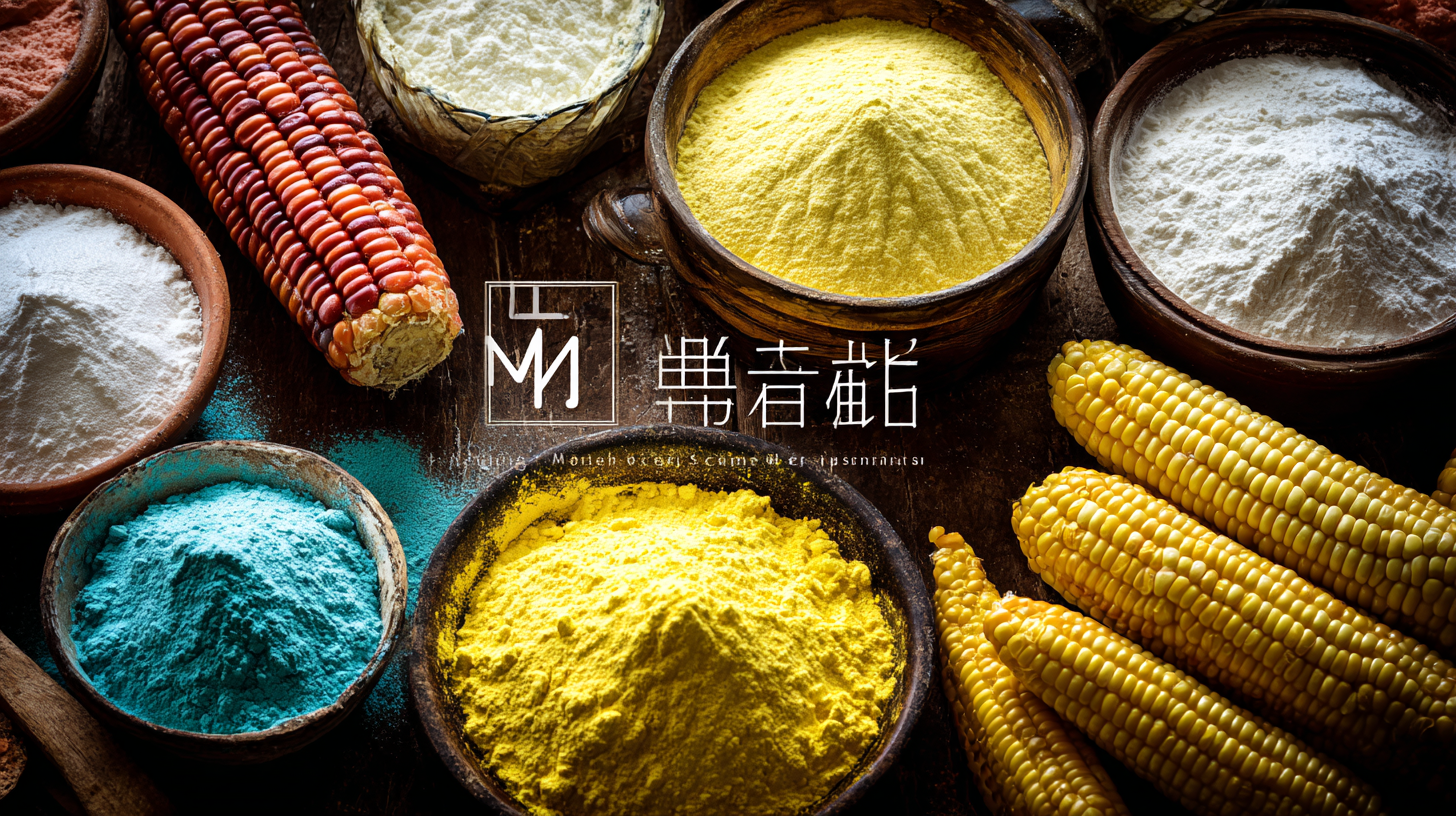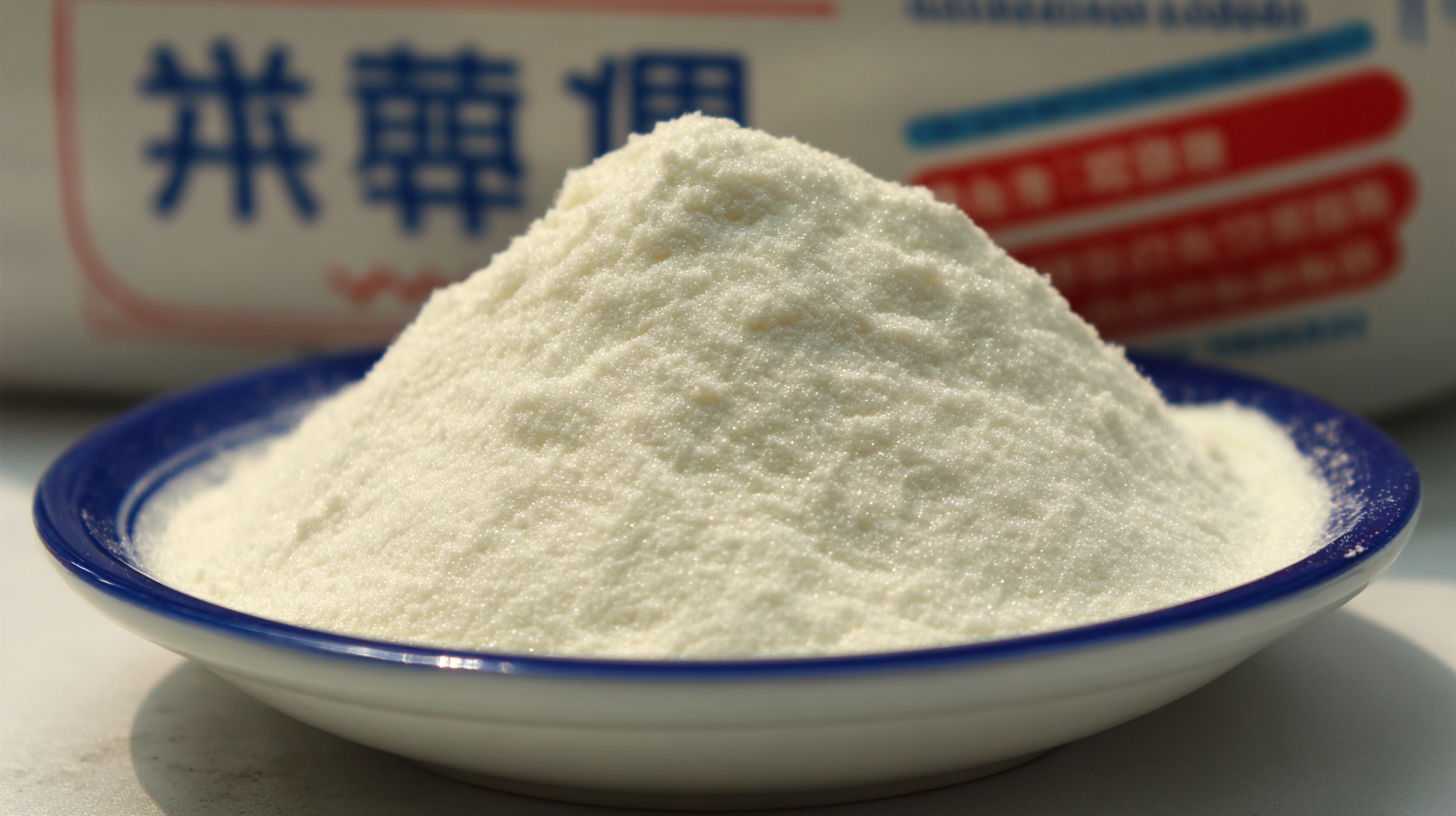
Unlocking Global Markets with the Best Modified Corn Starch from Top Chinese Manufacturers
In today’s rapidly evolving food and industrial sectors, Modified Corn Starch has emerged as a pivotal ingredient, providing enhanced functionality and versatility in various applications. According to a market research report by Mordor Intelligence, the global modified starch market is projected to grow at a CAGR of 5.1% from 2021 to 2026, reflecting the increasing demand across industries such as food, pharmaceuticals, and paper production. Top Chinese manufacturers lead this growth, offering innovative and high-quality modified corn starch products that cater to diverse market needs. This ultimate guide aims to explore the potential of modified corn starch sourced from China, unlocking opportunities for businesses seeking to expand their global market reach while leveraging the superior properties of this essential ingredient.

Exploring the Unique Properties of Modified Corn Starch from Leading Chinese Suppliers
The modified corn starch market is witnessing significant growth, driven by increasing demand for clean-label and non-GMO ingredients. Valued at $13.7 billion in 2022, the market is projected to reach $15.9 billion by 2027, growing at a compound annual growth rate (CAGR) of 3.1%. This expansion reflects the food industry’s shifting focus towards functional ingredients that cater to health-conscious consumers. As global food manufacturers seek high-quality modified starches, Chinese suppliers are emerging as key players, offering unique products characterized by their versatile applications and cost-effectiveness.
The superior properties of modified corn starch, such as thickening, gelling, and stabilizing, make it an essential ingredient across diverse food products. Reports indicate that the food starch industry is expanding, particularly with the rising trend of processed and convenience foods. As consumer preferences evolve, the ability of Chinese manufacturers to innovate and adapt their products, including modified corn starch, will be crucial. The strategic introduction of genetically modified (GM) seed cultivation in China aims to bolster domestic food production, further enhancing the capabilities of suppliers in this growing market segment.
Unlocking Global Markets with the Best Modified Corn Starch
| Supplier Region | Modified Corn Starch Type | Viscosity (cP) | pH Level | Applications | Packaging Options (kg) |
|---|---|---|---|---|---|
| Eastern China | Hydroxypropyl Starch | 2000 | 6.0 | Food Industry, Sauces | 25, 50, 100 |
| Northern China | Octenyl Succinylated Starch | 1500 | 7.5 | Snack Foods, Emulsifiers | 20, 50 |
| Southern China | Cross-linked Starch | 1200 | 5.5 | Bakery, Confections | 25, 50, 100 |
| Central China | Native Starch | 800 | 6.2 | Dairy Products, Dressings | 25, 75 |
Key Technical Specifications That Define Quality in Modified Corn Starch
When it comes to modified corn starch, understanding the key technical specifications that define quality is essential for businesses looking to harness its potential in global markets. One of the primary factors is the degree of substitution, which indicates the extent to which the starch's structure has been altered. A higher degree of substitution typically results in improved solubility and thickening capabilities, making it crucial for applications in food products, adhesives, and pharmaceuticals.
Another important specification is the viscosity profile, which measures how the starch behaves under various conditions. This characteristic affects processing and end-product performance, especially in industries where consistency and stability are paramount. Additionally, the gelatinization temperature and the cold-water solubility impact the starch's usability in different formulations. Manufacturers must ensure their modified corn starch meets stringent quality standards to achieve optimal performance in diverse applications, thereby enabling businesses to unlock new opportunities in global markets.
Comparative Analysis: Top Chinese Manufacturers of Modified Corn Starch
The global modified starch market is experiencing notable growth, with its valuation rising from $13.7 billion in 2022 to an anticipated $15.9 billion by 2027, reflecting a compound annual growth rate (CAGR) of 3.1%. This trend is significantly influenced by the increasing demand for modified corn starch in various industries, including food, pharmaceuticals, and personal care products. As a result, manufacturers, particularly in China, are strategically positioning themselves to meet the diverse needs of global markets.
A comparative analysis of the top Chinese manufacturers of modified corn starch reveals a landscape characterized by innovation and quality. These companies leverage advanced technology and sustainable sourcing to produce a range of modified starch products tailored for specific applications. By focusing on improving product functionalities, such as emulsification, thickening, and stability, these manufacturers are not only enhancing their competitive edge but also contributing to the overall growth of the modified starch sector. Their efforts are crucial in unlocking new opportunities for businesses looking to expand their offerings in international markets.

Innovative Applications of Modified Corn Starch in Global Markets
The global food starch market is experiencing significant growth, with a valuation of USD 14.5 billion in 2023 and projections indicating an increase to USD 22.88 billion by 2032. This surge is fueled by the innovative applications of modified corn starch across various sectors, particularly in the food industry. As consumers increasingly seek allergen-free and gluten-free options, modified corn starch has emerged as a versatile ingredient capable of meeting these demands. In fact, approximately 33 million Americans are reported to have food allergies, highlighting the need for safer food alternatives and new formulations that rely on the functionality of modified starches.
In addition to the food sector, the industrial starch market is witnessing robust growth, driven by the versatility of starch applications in numerous industries. The peeling demand for modified corn starch, particularly in sectors ranging from textiles to pharmaceuticals, underscores its critical role in enhancing product performance and sustainability. As industries continue to explore innovative uses for modified corn starch, top Chinese manufacturers are poised to play a pivotal role in satisfying global market needs and advancing the industry into a new era of growth.
Navigating Supply Chains: Ensuring Quality and Reliability from Chinese Manufacturers
Navigating the complexities of global supply chains necessitates a keen focus on quality and reliability, especially when sourcing modified corn starch from top Chinese manufacturers. As demand for this versatile ingredient grows across various industries, including food, pharmaceuticals, and textiles, companies must establish solid partnerships with suppliers that can consistently deliver high-quality products. Conducting thorough research and vetting potential manufacturers is essential to ensure they adhere to strict quality control standards and have a proven track record of meeting international regulations.

Collaboration with reputable Chinese manufacturers not only ensures superior product quality but also enhances supply chain reliability. These manufacturers often invest in state-of-the-art technology and adhere to best practices, optimizing their production processes to meet global standards. By maintaining open lines of communication and implementing regular quality audits, businesses can mitigate risks associated with supply chain disruptions. This proactive approach paves the way for sustainable partnerships that can adapt to evolving market demands while maintaining a focus on delivering exceptional value to customers.
